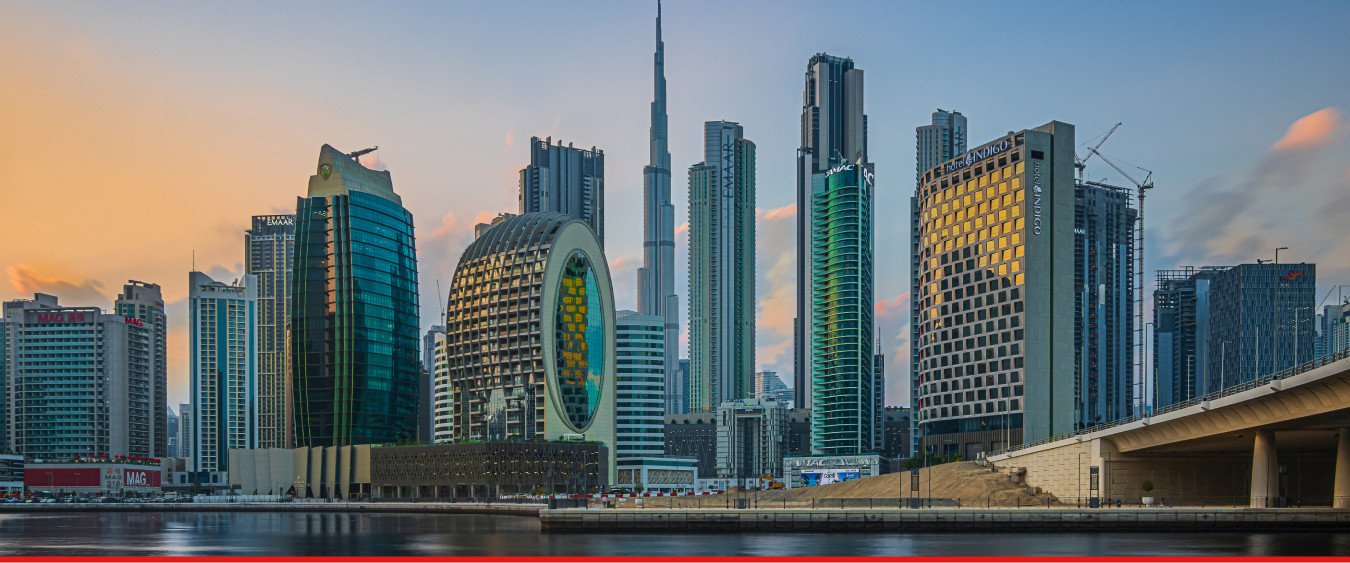With the recent overhaul of the UAE’s Companies Law, one of the most significant drawbacks for foreigners to establish Mainland or onshore companies is no longer an issue. What are the implications of this critical regulatory change, and what do the Emirati authorities expect from it? We have all the details for you to take advantage of this opportunity for company formation.
A review of company ownership types in Dubai and the rest of the UAE for foreigners
Before we go any further, let’s quickly recap the primary corporate structures you’ll find in the UAE and see how it impacts foreigners looking to set up an entity in the country. You’ve probably heard us use Free Zone, offshore and Mainland somewhat interchangeably in prior articles. But how did they differ before this change in the law?
One of the reasons why Dubai and the UAE are so attractive to international businesses are their favourable Free Zones, which are more than 40 free trade economic areas where foreigners can own all the shares in those entities. While every Free Zone has its particular sets of regulations concerning the industries they cover and other aspects, there are no ownership restrictions based on nationality. Why? Most Free Zone companies only let you operate either within the Free Zone or abroad, making this model advantageous for establishing a regional hub within the Gulf or the greater Middle East, Africa and South Asia regions. The caveat is that you generally cannot operate onshore (or locally) with these entities.
The traditional definition of an offshore company is that you incorporate your entity in a country. Still, you’re carrying out most of your operations in another, as is the case in Dubai. Some premier offshore jurisdictions let offshores have local operations (Panama is one). The general rule-of-thumb is that you seek to optimise your offshore business model by capitalising on more cost-effective conditions with an offshore structure. Also, remember that you must declare your offshore company.
Lastly, if you wanted to have a local onshore company in the UAE like a restaurant or spa, you would have to opt for UAE Mainland company formation. A Mainland company had a catch that foreigners could only own a maximum of 49% of the stakes, with a local sponsor (an Emirati national) holding the majority stake by law. This caveat proved to be a significant drawback for many foreigners looking to offer goods and services to Emirati locals, until now.
How have foreign ownership rules for UAE Mainland companies changed?
On 23 November 2020, a presidential decree ushered sweeping changes to Federal Law No. 2 on Commercial Companies, better known as the Companies Law. The legislation introduced 51 article amendments, as well as incorporating three brand-new articles. What are the sweeping changes we care about most?
Mainland companies no longer need an Emirati national to hold a majority stake (also known as the 49-51 rule), thereby allowing full foreign ownership of onshore Emirati companies
An Emirati national or majority-Emirati company is no longer required to serve as a local agent for local branches
Companies no longer have to have their board Chair be Emirati
A company’s board of directors does no longer need to have the majority be Emirati nationals
Some priority industries are exempt from these changes, including state-owned enterprises, transport, utilities and oil and gas exploration.
Why did the Emirati government introduce these changes? These measures are part of the Emirati government’s efforts to make it easier to do business in the UAE. With more than 80% of the UAE’s population comprised of foreigners, the authorities wanted to reduce the cost of establishing Mainland companies and attract the foreign entrepreneurs that previously found the 49-51 rule off-putting. 2020 also saw the country’s economy contract because of the pandemic. Some projections state that the UAE would lose around 10% of its population due to workers having to go home because of a job loss (most residency visas in the UAE are employment-based). A population decline of this magnitude would have demonstrable consequences on a macroeconomic level.
What is the timing on these changes to foreign ownership rules for UAE Mainland company formation?
While most of the changes stemming from this decree came into effect on 2 January 2021, the most significant changes will go into place six months from their publication in the Official Gazette on 30 September 2020. The primary changes fall into the latter category, meaning that if you currently have a Mainland company or wish to establish one, you have to wait until 30 March 2021 to take advantage of these new regulations.
It’s not too early to start thinking about the adjustments you must make. Those with an already-existing Mainland entity, you have until 2 January 2022 to make the necessary changes. If you fail to do so, the authorities will consider your firm dissolved, and you may have to pay fines ranging from 100,000 to 10 million AED. That means you need to evaluate your agreements with your local partners and determine whether they can walk away from the arrangements. You also will need to update critical documents like your Articles of Association.
And if you already have a Free Zone company, and these regulatory changes make it attractive for you to start operating onshore instead of in a Free Zone potentially, it’s the perfect opportunity to gain insight from experts like Europe Emirates Group.
Are you interested in pursuing Dubai Mainland company formation or moving over to the UAE Mainland?
With loads of regulatory of financial implications of this sweeping change, the best course of action is to consult with our team of Mainland company formation experts at Europe Emirates Group. We will evaluate your existing or future structure to determine what works best for your business goals. We will also address the necessary steps to comply with every aspect of the revised Companies Law to avoid fines. And for those of you only at the stage of deciding between Mainland or Free Zone, we can also consult you regarding this query. We encourage you to schedule your initial consultation today and get started on your Dubai Mainland company journey.
Written by
Adrian Oton
CEO, Europe Emirates Group
Graphic linking to UAE Setup Guide




